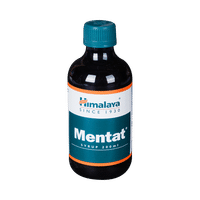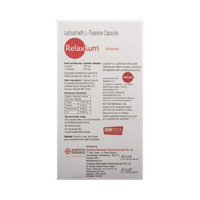Rs.72.80for 1 strip(s) (10 tablets each)
food interaction for Oline Plus
alcohol interaction for Oline Plus
pregnancy interaction for Oline Plus
lactation interaction for Oline Plus
food
alcohol
pregnancy
lactation
Oline Plus 20 mg/5 mg Tablet may be taken with or without food, but it is better to take it at a fixed time.
None
None
CAUTION
It is unsafe to consume alcohol with Oline Plus 20 mg/5 mg Tablet.
UNSAFE
Oline Plus 20 mg/5 mg Tablet may be unsafe to use during pregnancy. Although there are limited studies in humans, animal studies have shown harmful effects on the developing baby. Your doctor will weigh the benefits and any potential risks before prescribing it to you. Please consult your doctor.
CONSULT YOUR DOCTOR
Oline Plus 20 mg/5 mg Tablet is probably unsafe to use during breastfeeding. Limited human data suggests that the drug may pass into the breastmilk and harm the baby.
CONSULT YOUR DOCTOR
SALT INFORMATION FOR Oline Plus
Fluoxetine(20mg)
Uses
Fluoxetine is used in the treatment of depression, Panic disorder and obsessive-compulsive disorder.
How it works
Fluoxetine is a selective serotonin reuptake inhibitor (SSRI) antidepressant. It works by increasing the levels of serotonin, a chemical messenger in the brain. This improves mood and physical symptoms of depression and also relieves symptoms of panic and obsessive disorders.
Common side effects
Weakness, Insomnia (difficulty in sleeping), Nervousness, Rash, Anxiety, Blurred vision, Decreased libido, Fatigue, Frequent urge to urinate, Gastrointestinal disturbance, Headache, Palpitations, Prolonged QT interval, Arrhythmia (irregular heartbeats), Discomfort when urinating, Dilatation of pupil, Delusion, Photosensitivity, Micturition disorders, SIADH (water retention due to excessive ADH), Serotonin syndrome
Olanzapine(5mg)
Uses
Olanzapine is used in the treatment of schizophrenia and mania.
How it works
Olanzapine is an atypical antipsychotic. It works by affecting the levels of chemical messengers (dopamine and serotonin) to improve mood, thoughts and behavior.
Common side effects
Dizziness, Sleepiness, Weight gain, Increased prolactin level in blood, Constipation, Joint pain, Increased appetite, Weakness, Extrapyramidal symptoms, Increased liver enzymes, High blood pressure, Cough, ECG changes, Urinary incontinence, Seizure, Altered blood lipid level, Increased glucose level in blood, Anticholinergic effects, Decreased white blood cell count (neutrophils), Hypersensitivity, Tardive dyskinesia, Menstrual disorder, Edema (swelling), Unusual production of breast milk in women and men, Diarrhea, Abnormal gait, Cerebrovascular accident, Drug rash with eosinophilia and systemic symptoms (DRESS) syndrome, Diabetic ketoacidosis, Intestinal obstruction, Osteoporosis
SUBSTITUTES FOR Oline Plus
82 Substitutes
82 Substitutes
Sorted By
 Rs. 135pay 81% more per Tablet
Rs. 135pay 81% more per Tablet Rs. 108pay 44% more per Tablet
Rs. 108pay 44% more per Tablet Rs. 118.35pay 54% more per Tablet
Rs. 118.35pay 54% more per Tablet Rs. 134pay 79% more per Tablet
Rs. 134pay 79% more per Tablet Rs. 142.90pay 92% more per Tablet
Rs. 142.90pay 92% more per Tablet
Expert advice FOR Oline Plus
- Take Fluoxetine in the morning since it can keep you awake if taken late at night.
- It may cause anxiety and agitation when you first start taking it.
- It may cause weight loss and decreased appetite.
- Don't drive or do anything requiring concentration until you know how Fluoxetine affects you.
- Talk to your doctor if you notice sudden mood changes or develop suicidal thoughts.
- Inform your doctor if you experience difficulty having an orgasm or have decreased sex drive.
- The addiction/dependence potential of Fluoxetine is very less.
- Do not stop treatment suddenly without consulting your doctor as that may lead to agitation, anxiety, and dysphoria.
Frequently asked questions FOR Oline Plus
Fluoxetine
Q. What is Fluoxetine? What is it used for?
Fluoxetine is an antidepressant drug and belongs to the class of selective serotonin re−uptake inhibitors (SSRIs). In adults, this medicine is used to treat major depressive episodes, eating disorder (bulimia nervosa) and obsessive-compulsive disorder (OCD). In children and adolescents aged eight years and above, it is used to treat moderate to severe major depressive disorder.
Q. Does Fluoxetine cause sleepiness?
Somnolence (sleepiness) is a common side effect of Fluoxetine. However, Fluoxetine can also cause other sleep problems like insomnia (inability to sleep) and abnormal dreams. You must talk to your doctor if you experience sleep problems while taking Fluoxetine.
Q. Does Fluoxetine cause weight gain?
Fluoxetine does not cause weight gain, rather it causes weight loss, which is a common side effect seen with its use. Weight loss is usually proportional to baseline body weight. Please consult your doctor if you experience a change in weight while taking Fluoxetine.
Olanzapine
Q. Can Olanzapine be used for anxiety?
The treatment of anxiety with Olanzapine is not an approved indication. Olanzapine has been studied for treatment of anxiety disorders but the results have not been very convincing. However, it can be used along with anxiolytics in anxiety disorders for better results.
Q. Is Olanzapine a sleeping pill?
No, Olanzapine is not a sleeping pill. It belongs to the atypical antipsychotic class of medicines. It is used to treat schizophrenia. Schizophrenia is a mental illness that causes disturbed or unusual thinking, loss of interest in life, and strong or inappropriate emotions. Olanzapine also helps with bipolar disorder (manic depressive disorder). It is a disease that causes episodes of depression, mania, and other abnormal moods.
Q. How long does it take for Olanzapine to kick in?
Olanzapine may start showing initial improvement within 1-2 week of starting. However, for full benefits it may take about 4-6 weeks. You should continue taking it and consult your doctor in case you feel that Olanzapine is not helping you.























